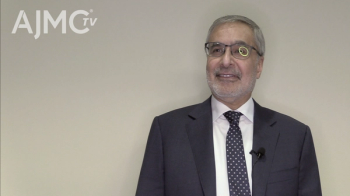
Carfilzomib Improves Renal Response Compared With Bortezomib in RRMM
Carfilzomib-dexamethasone improved renal overall and complete response in patients with relapsed or refractory multiple myeloma (RRMM) compared with a regimen of bortezomib-dexamethasone in a real-world study.
Carfilzomib (Kyprolis) plus dexamethasone (Kd) improved renal overall and complete response more in patients with relapsed or refractory
The recent real-world study compared renal response between patients with RRMM (1 to 3 prior lines of treatment) and renal impairment who were treated with Kd vs those given Vd.
The primary outcome was best renal response, and a secondary analysis assessed OS and time to next treatment (TTNT) across groups stratified by depth of renal response. The researchers evaluated patients’ time to renal response (according to International Myeloma Working Group [IMWG] criteria) using the Kaplan-Meier method and log-rank test.
Researchers utilized data from the Oncology Services Comprehensive Electronic Records (OSCER) database from January 2012 through February 2018. Inclusion criteria included a MM diagnosis at 18 years or older; at least 2 visits to the OSCER clinic; treatment with Kd or Vd as line 2 (2L), 3 (3L), or 4 (3L) of therapy; and baseline renal impairment.
Overall, 543 patients treated with Kd and 1005 treated with Vd were included in the analysis. Results were also analyzed in a cohort of patients in the 2L setting, which consisted of 346 (64%) patients given Kd and 825 (82%) patients who received Vd. Median treatment duration was 6 months in both of the 2L subgroups, 4.4 months in the 2L-4L Kd cohort, and 4.3 months in the 2L-4L Vd group.
Patients in the 2L cohort on a regimen of Kd saw a higher renal overall response (ROR) than those given Vd (51.4% vs 39.6%; P < .0001). They also had improved renal complete response (RCR) at 26.6% vs 22.2% in the Kd group (P = .0229). After adjusting for baseline covariates, patients in the 2L Kd treatment group were 45% more likely to achieve ROR (incidence rate ratio [IRR], 1.45; 95% CI, 1.18-1.78) and 68% more likely to achieve RCR (IRR, 1.68; 95% CI, 1.24-2.28). Improved renal response with Kd was consistent regardless of the line of therapy during which the treatment was given.
The authors also found that renal responders had a significantly longer OS and TTNT compared with renal nonresponders. In the 2L group, patients who achieved RCR had a 46% lower risk of death than renal nonresponders (HR, 0.54; 95% CI, 0.26-1.08), and those who reached ROR had a 30% lower risk of death (HR, 0.70; 95% CI, 0.43-1.14). Renal responders were also less likely to need a subsequent line of therapy, with those who reached RCR 41% less likely (HR, 0.59; 95% CI, 0.43-0.80) and those who reached ROR, 22% less likely (HR, 0.78; 95% CI, 0.61-1.00).
Currently, the IMWG recommends bortezomib-based regimens for myeloma-related renal impairment, but the study authors conclude that their results combined with findings regarding patients with MM with renal impairment in the ENDEAVOR trial support the recommendation of carfilzomib for patients with MM and renal impairment.
“Our study results are compelling, given the importance of having effective MM therapies available at first relapse as well as after multiple lines of treatment, as patients are living longer with MM,” the authors wrote. “…In addition, there is an unmet need for effective MM therapies for patients with severe renal impairment, because these patients are often excluded from MM clinical trials. Our study results suggest that treatment with Kd can help address this need.”
Reference
Kumar S, Fu A, Niesvizky R, Jagannath S, Boccia R, Raje N. Renal response in real-world carfilzomib- vs bortezomib-treated patients with relapsed or refractory multiple myeloma. Blood Adv. 2021;5(2):367-376. doi:10.1182/bloodadvances.2019001059
Newsletter
Stay ahead of policy, cost, and value—subscribe to AJMC for expert insights at the intersection of clinical care and health economics.
















